Fennel seeds have that unmistakable licorice kick, right?
They’re like magic in a dish, adding a punch of flavor that’s hard to beat.
But what do you do when your spice rack turns up empty, or you’re just not a fan of that anise vibe?
No sweat. We’ve got you covered with five killer swaps that’ll keep your cooking game strong.
From seeds to powders, these alternatives are about to become your new kitchen BFFs.
Ready to shake things up? Let’s dive in.
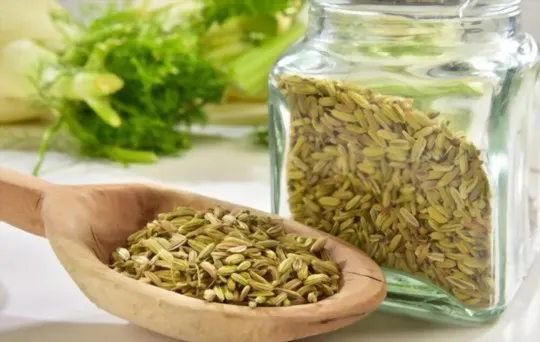
The 5 Best Substitutes for Fennel Seeds
If you’re looking for a substitute for fennel seeds, never fear – there are plenty of options available.
Here are five of the best substitutes for fennel seeds:
1 – Anise Seeds
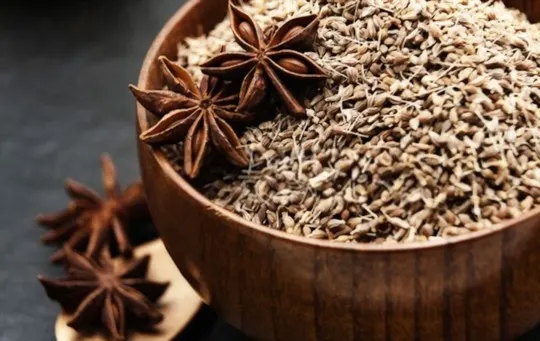
Anise seeds originate from the Middle East and have been used as a spice since ancient times.
The aroma of the seeds is licorice-like, making it highly fragrant with a sweet licorice flavor.
Anise seeds have a distinctive, slightly sweet taste and crunchy texture when added to recipes.
Its flavor can be substituted for fennel seed in certain dishes.
However, the two are not interchangeable due to the vastly different appearance, aroma, and taste between anise and fennel seed.
Anise seed is an exquisite spice with its distinct fragrance sure to invigorate any dish.
2 – Caraway Seeds
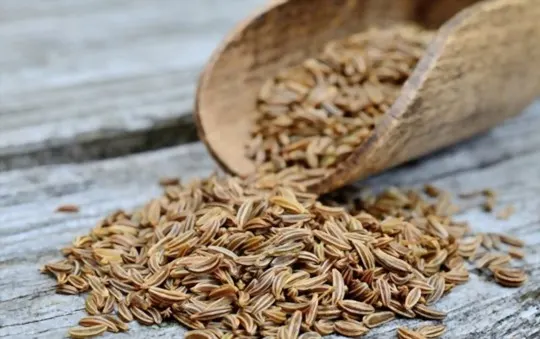
Caraway seeds are a versatile spice that can bring a unique flavor to many dishes.
They are oblong and ridged with a flavor profile combining the taste of dill, parsley, and black pepper.
Caraway seeds are often used in rye bread and potato dishes, but they can also be added to cookies and cakes for an unexpected twist.
Their savory-sweet combination adds complexity to ordinary recipes.
Because caraway seeds resemble fennel seeds in appearance, they make a great substitute if fennel is unavailable.
Just remember that caraway isn’t as sweet as fennel, so you’ll need to increase the amount used when substituting it.
3 – Dill Seeds
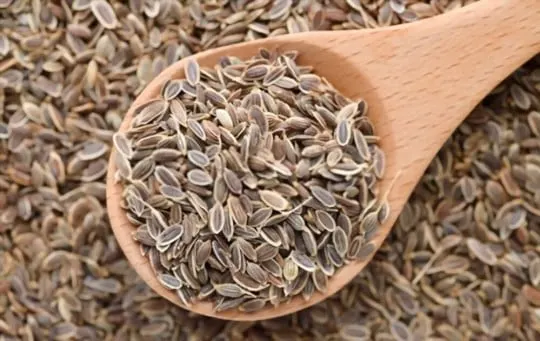
Dill seeds are an incredibly versatile ingredient that can be used to add flavor and texture to a wide range of dishes.
The seeds have a delicate, sweet flavor with hints of parsley, citrus, and anise; their texture is crunchy when raw and slightly softer when cooked.
Dill seed can be used in baking, salads, dressings, marinades, or sauces, as well as stews and soups.
To substitute for fennel seeds in a recipe, use dill seeds instead: both share a similar anise-like flavor profile, so the switch won’t take away from the other flavors in your dish.
4 – Cumin Seeds
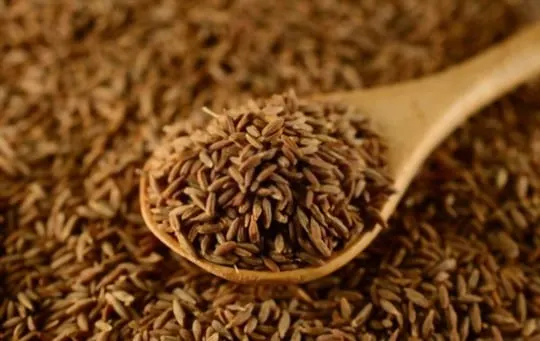
Cumin seeds are a major component of many Middle Eastern, Asian, and Latin American cuisines.
The smart shape, small size, and earthy color of the cumin seed give dishes an exotic appeal.
Cumin has a very particular intense earthy aroma that stands out in food, making it an ideal ingredient.
Along with its distinctive taste, cumin exudes notes of fuel or mustard and offers an almost nutty flavor when cooked.
Its texture is quite subtle, with a slight crunch to it.
For those who wish to substitute fennel seeds for cumin, both have similar flavor profiles and textures, but fennel tends to be slightly sweeter than cumin.
As such, one could add some sweetness by adding 1/4 teaspoon of sugar for every teaspoon of cumin, replaced with fennel seeds in a recipe.
5 – Fresh Fennel and Fennel Fronds
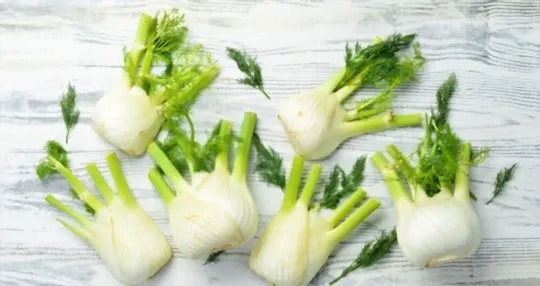
Fresh fennel is a versatile vegetable that is often used in the kitchen.
Its crunchy texture is bell-shaped with tender, feathery leaves fronds at the top.
Fennel has a unique flavor that combines anise, licorice, and herbs to create an almost sweet taste.
It’s often served raw as part of a salad or slaw, but it can also be roasted or braised.
One advantage of using fresh fennel instead of fennel seeds is that you can get great flavor without having to grind the seeds into powder beforehand.
Fresh fennel can easily be substituted for ground fennel; just mince up the bulb and use it as desired.
When cooking with fresh fennel, be sure not to overcook it – the longer you cook it, the more its flavor will break down, and the crunchier texture will be lost.

Leave a comment